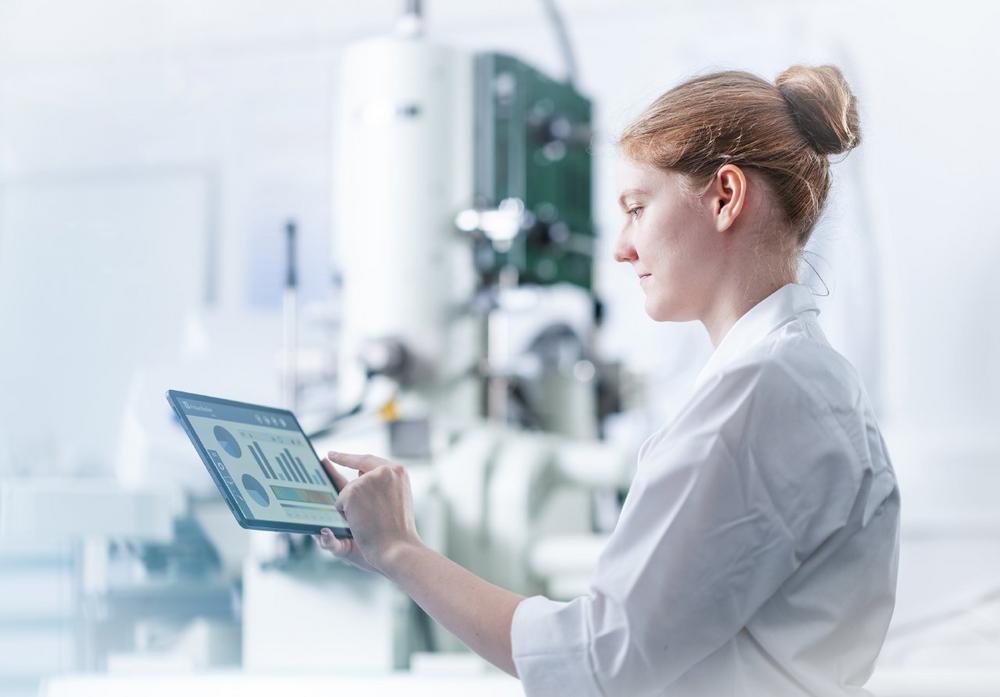The project called “DiWan” aims at the “Digital Transformation in Materials Testing”. Fraunhofer IWS coordinates the collaboration of six scientific institutions and medium-sized companies participating in this project. Together, the partners initially want to develop an electronic laboratory book, a knowledge database and a digital laboratory management system. These components will finally result in a virtual expert creating completely new possibilities for modern materials testing.
High-quality materials testing is key to many innovations
The development of new materials and their property analyses are key issues for many innovations in industry. Exact knowledge of steel corrosion resistance, an alloy’s hardness or which metals can be processed with additive manufacturing equipment – all these details are often essential for the development of cutting-edge products, their availability is still a bottle neck.
However, there is no shortage of information: “Knowledge about materials is growing exponentially,” explains Dr. Jörg Bretschneider, who is in charge of the “DiWan” project at Fraunhofer IWS. “Yet only a genius could memorize the sheer volume of this knowledge and provide it in a focused way.” Apart from that, he says, much of the information is widely scattered: in many manufacturers’ materials data sheets, in scientific studies published in various journals, in standards “and various technical databases. “Basically, this data is available, but not all is at hand,” emphasizes Jörg Bretschneider. “We therefore want to create digital helpers that make this knowledge easily accessible and usable.” The researchers are also working on materials science ontologies – an approach to describe data relationships.
Such digital assistants can, for example, improve both the quality and the speed of materials analyses. If experienced colleagues are not immediately at hand, a consultation with the digital assistant can help – for example, to plan a new recipe for an etched metallographic section. Moreover, the virtual experts may offer opportunities to establish new cross-connections and insights from previously scattered knowledge sources. The materials testers themselves can expand their expertise more efficiently and comprehensively – entirely in the spirit of lifelong learning.
Ergonomic scientists accompany change in the world of work
Concepts such as followed in DiWan, will significantly change everyday workflows and collaboration in many laboratories. This is one of the reasons why, in addition to the German Federal Ministry of Education and Research (BMBF), the European Social Fund (ESF) is funding the DiWan project: “We are focusing on the ‘Future of Work’ here,” emphasizes the initiator of the project, Prof. Martina Zimmermann, expert group manager at Fraunhofer IWS and president of the German Society for Materials Science e. V. DiWan offers the opportunity to change entire collaboration cultures. The project’s support by ergonomic scientists from TU Dresden is therefore a crucial element for success. The researchers expect that the interaction between materials testers and virtual experts will first gain acceptance among the younger members of the “smartphone generation”. After all, people who are already used to documenting private activities on the Internet and exchanging information on digital platforms will also upload digital images of analysis results and collaborate with digital expert systems as a matter of course. On the long run, the results obtained in the project will also be incorporated into the training curricula for materials testers. In addition, DiWan will provide new ways of preserving empirical knowledge – a crucial element of entrepreneurial value creation. “With the digital helpers, we want to prevent this expertise from getting lost when a materials tester changes jobs or retires,” emphasizes Jörg Bretschneider.
Federal government and EU fund the project
The German Federal Ministry of Education and Research (BMBF) and the EU are funding the project with around two million euros from 2020 to 2023. Seven partners are involved: Fraunhofer IWS coordinates the project and contributes its domain knowledge in materials science. The TU Dresden’s “Center for Production Engineering and Management (CIMTT)” focuses on ergonomic aspects and the TU Dresden’s database systems group concentrates on the new DiWan knowledge databases. From industry, these partners are involved: the Test and Development Center for the Automotive Industry “IMA” from Dresden, the engineering services company “imq” from Crimmitschau, the testing technology manufacturer “Hegewald & Peschke” from Nossen and the software manufacturer “Labforward” from Berlin, which specializes in electronic laboratory books (ELN).
Fraunhofer-Institut für Werkstoff- und Strahltechnik IWS
Winterbergstraße 28
01277 Dresden
Telefon: +49 (351) 83391-0
Telefax: +49 (351) 83391-3300
http://www.iws.fraunhofer.de
Leiter Unternehmenskommunikation
Telefon: +49 (351) 83391-3614
Fax: +49 (351) 83391-3300
E-Mail: markus.forytta@iws.fraunhofer.de
![]()
